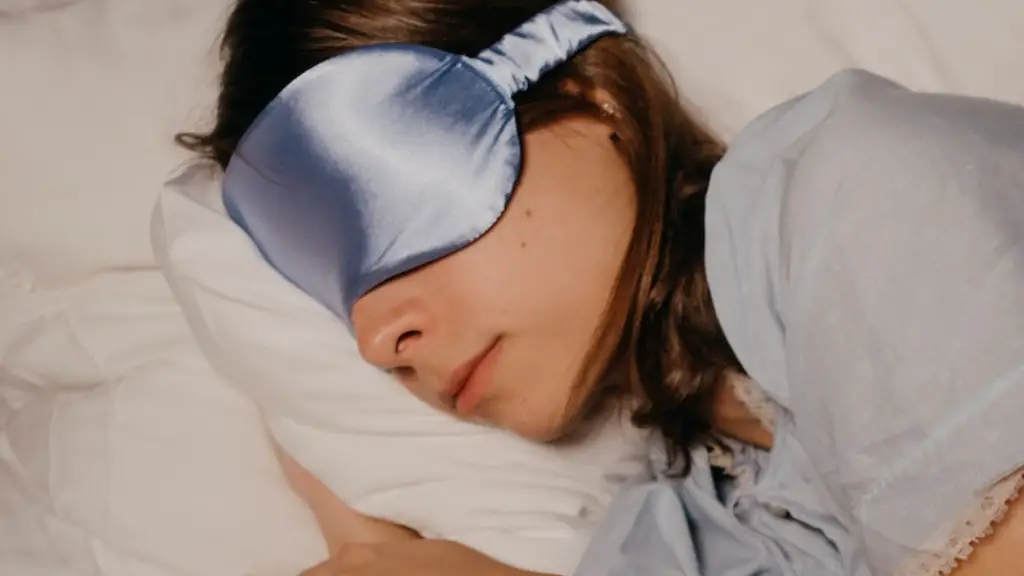Lately, you’ve been taking melatonin to help you sleep. But you’ve noticed that your dreams have become more vivid and, sometimes, even a little bit strange. You wonder if there’s a connection.
It turns out that melatonin and dreams are connected in a few ways. For one, melatonin is a hormone that helps to regulate our sleep cycles. It’s produced naturally in our bodies, but we can also take it in supplement form. And while it doesn’t cause us to dream, it can affect the quality of our dreams.
Some people report having more vivid, intense dreams when they take melatonin. Others find that their dreams are more bizarre or surreal. And still others find that they have a hard time remembering their dreams at all.
So, if you’re noticing some changes in your dreams after starting to take melatonin, don’t be alarmed. It’s perfectly normal. In fact, it might even be a sign that the melatonin is working!
There is no definitive answer to this question since there is little scientific evidence to support a connection between melatonin and vivid dreaming. However, some people report that taking melatonin supplements can lead to more vivid and/or frequent dreams. It is also worth noting that melatonin is often used as a treatment for insomnia, and some research has suggested that it can improve sleep quality. Therefore, it is possible that taking melatonin may indirectly lead to more vivid dreams by helping you get a better night’s sleep.
Why does melatonin give weird dreams?
Melatonin is a hormone that is produced by the pineal gland in the brain. It is responsible for regulating the body’s sleep-wake cycle. The levels of melatonin in the body increase in the evening and peak during the early morning hours. Melatonin levels are highest in children and decrease with age.
Studies have shown that melatonin plays a role in memory and learning. The more melatonin in your body, the more it may be contributing to memory processes happening during sleep. Because of this, you may have more episodes of vivid dreams that help your brain establish how these memories relate to your understanding of reality while you’re awake.
If you are having intense dreams or nightmares, you may want to consider reducing your dose of melatonin or stopping the supplement altogether. This can help you get a better night’s sleep.
Does melatonin give you lucid dreams
Melatonin is a hormone that is naturally produced by the body and helps to regulate the sleep cycle. Taking a melatonin supplement can help to induce sleep and can also help to increase the quality of sleep. Some people find that taking a melatonin supplement can also help to induce lucid dreams. Lucid dreaming is when a person is aware that they are dreaming and can control the dream. In order to achieve lucidity, it takes practice, patience and time. Taking a melatonin supplement can help to increase the chances of having a lucid dream, but it is not a guarantee.
There is no definitive answer on whether or not melatonin actually helps with sleep. However, Dr Ramkissoon does not recommend taking it long-term. The reason for this is that if you need to take melatonin every night to get to sleep, there is likely an underlying reason why that is the case. Therefore, it is best to consult with a doctor to find out the root cause of the sleep issue.
What are the negative effects of melatonin?
Melatonin is a hormone that is produced by the pineal gland in the brain. It is responsible for regulating the body’s sleep-wake cycle. When it is dark, the body produces more melatonin, which makes you feel sleepy. When it is light, the body produces less melatonin, which makes you feel more alert.
Most people do not experience any side effects from taking melatonin. However, the most common side effects include headache, dizziness, and nausea. Other, less common side effects might include vivid dreams or nightmares, short-term feelings of depression, irritability, stomach cramps, diarrhea, constipation, decreased appetite, and urinary incontinence at night. If you experience any of these side effects, it is important to speak with your doctor.
If you are considering using melatonin to help your child fall asleep, it is important to consult with their doctor first. Melatonin can actually worsen night terrors in children who are prone to them, so it is not always the best option for sleep aid. There are other potential risks and side effects associated with melatonin use, so it is always best to speak with a medical professional before giving it to your child.
What supplements cause vivid dreams?
This is an interesting topic that warrants further research. However, it is too soon to say definitively whether or not vitamin B6 can make dreams more vivid, colourful, emotional and bizarre. More studies need to be done in order to reach a conclusion.
There are a few different things that can cause vivid dreaming. One is sleep deprivation—when you don’t get enough sleep, your brain is more likely to be in a REM state when you do finally drift off. Another possibility is sleep disorders like sleep apnea or narcolepsy, which can also disrupt the normal sleep cycle and lead to more vivid dreams. Medications can also cause vivid dreams as a side effect. And finally, stress or a change in routine can also lead to vivid dreams.
What supplements cause weird dreams
Magnesium is a mineral that is essential to the body and is known for its benefits in helping the body to relax. It is also known for its ability to help with sleep and to give people crazy dreams. A common supplement that contains magnesium is magnesium citrate, which is often used to treat constipation.
If you are pregnant, breastfeeding or have an autoimmune disorder, do not use melatonin. If you have a seizure disorder or depression, talk to your health care provider. If you have diabetes or high blood pressure, talk to your health care provider.
Does your body stop making melatonin if you take it?
One of the most common myths around melatonin is that supplementing with it will cause your brain to make less of it. Taking a melatonin supplement before bed will not affect the pineal gland’s natural secretion of it.
This is an interesting study that suggests that melatonin may be effective at reducing symptoms of depression and anxiety. It is worth noting that the study was small and more research is needed to confirm these findings. However, if melatonin is found to be effective at reducing anxiety, it could be a useful tool for people who experience anxiety before medical procedures.
Can long term use of melatonin be harmful
There is a lack of high quality studies on the long-term effects of melatonin use, so the risks are still unknown. However, from the studies that have been done, melatonin doesn’t seem to cause any serious problems.
melatonin is a hormone that is responsible for regulating the sleep-wake cycle. It is produced naturally in the body, but can also be taken as a supplement. The half-life of melatonin is relatively short, meaning it is eliminated from the body relatively quickly. However, it can still have significant effects on sleep for several hours after it is taken.
Can melatonin cause parasomnia?
These results suggest that melatonin may cause parasomnia in some patients. Therefore, it is important to warn patients and their families about the potential risks of parasomnia and seek help from non-pharmacological treatments.
The results of the study show that melatonin was significantly more effective than placebo: patients on melatonin experienced significant increases in REM sleep percentage (baseline/melatonin, 147/178 vs. placebo/vehicle, 132/151). Melatonin was also associated with significant decreases in total sleep time (baseline/melatonin, 443/423 vs. placebo/vehicle, 457/438) and wake time after sleep onset (baseline/melatonin, 107/88 vs. placebo/vehicle, 119/103).
How much melatonin is too much
If you are considering taking melatonin, it is important to speak with a healthcare professional first. This is especially true if you are taking any other medications, as melatonin can interact with some drugs. It is also important to be aware of the potential side effects of taking too much melatonin, as this can lead to problems such as dizziness, headaches, and lethargy. Taking too much melatonin can also have a negative effect on your sleep cycle, so it is important to be aware of this before taking the supplement.
The purpose of this study was to investigate the relationship between serum vitamin D levels, calcium intake, and nightmares or bad dreams. The study found that decreased serum vitamin D levels and decreased calcium intake may be associated with the development of nightmares and bad dreams indirectly through their association with the psychological symptoms and MSP.
Final Words
There is no direct evidence that melatonin causes vivid dreams. However, some people report more vivid dreams when taking melatonin. It is unclear if this is a direct effect of the medication or a result of improved sleep quality.
There is not enough research to come to a definite conclusion about whether or not melatonin causes vivid dreams. However, some people report having more vivid dreams when taking melatonin. More research is needed to determine if there is a causal link between melatonin and vivid dreams.





